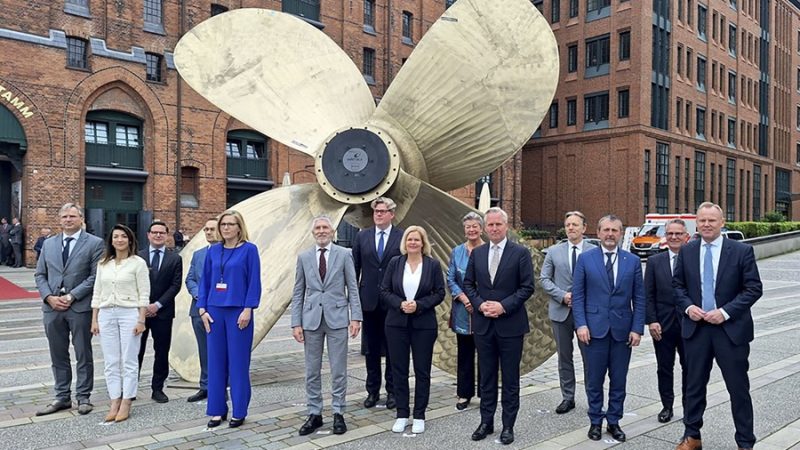Berlin – Spain will host the fifth ministerial meeting of the Coalition Against Organized Crime, which also includes Germany, Belgium, France, Italy, and the Netherlands, announced this Tuesday in the German city of Hamburg by the Spanish Interior Minister, Fernando Grande-Marlaska.
The minister attended a meeting of the coalition in the port city in northern Germany, which was founded in Brussels in 2021 with the aim of strengthening cooperation in the fight against serious crime and drug trafficking.
The meeting was attended by representatives from Spain, Germany, Belgium, France, Italy, and the Netherlands, as well as Sweden and Latin American partners from Brazil, Colombia, Ecuador, and Peru. There was also a presence from Europol, Eurojust, and the World Navigation Council.
“Seventy percent of drug seizures are made in our ports. I am in Hamburg (Germany) to discuss the next steps of our European Ports Alliance to combat organized crime and stop the flow of drugs to our continent,” said the European Commissioner for the Interior, Ylva Johansson, via her account on X.
During his speech at the conference, Grande-Marlaska also warned of the increase in violence associated with drug trafficking, “which poses a challenge to security in many European countries,” according to a statement from his ministry.
He raised the “very worrying levels of social and economic infiltration” achieved by criminal organizations during difficult times like the pandemic, wars, the energy and climate crisis, and technological disruption.
The Interior Minister insisted to his counterparts on the need to strengthen security cooperation at European ports, one of the main entry points for drugs.
“Collaboration between police and customs services, establishing minimum thresholds for container inspections, and security controls for professionals handling critical information in port companies and service provider companies are some of the key issues that must be addressed,” pointed out Grande-Marlaska.
The ministers adopted in Hamburg a joint declaration that advocates directing the coalition’s efforts towards three areas.
These areas of work are cooperation with the countries of origin and passage of drug trafficking – especially Latin America and the Caribbean -, the strengthening of major European logistics centers, ports and airports, and the dismantling of international criminal networks by intervening in their funding sources.
Cooperation with Latin America
Grande-Marlaska praised the commitment against organized crime of the Latin American countries, “with whom we have strong ties and an already close cooperation,” and agreed on the importance of fighting drug trafficking throughout its route, “especially at the source and transit and hand in hand with our partners from Latin America and the Caribbean.”
As part of this collaboration, representatives from Brazil, Colombia, and Peru participated for the first time at the meeting in Hamburg.
In this regard, Grande-Marlaska recalled the path opened last September 28 at the meeting held in Brussels between the Ministers of the Interior of the European Union (EU) and their counterparts from the Latin American Committee for Internal Security (CLASI) to enhance bi-regional cooperation against transnational crime.
In addition to this Hamburg meeting, the coalition had previously met in Amsterdam (2022) and Antwerp (2023). (May 7).
The coalition of European countries in the fight against serious organized crime was launched in December 2021 by the Ministers of Justice and Interior of Spain, the Netherlands, Belgium, and France, which were later joined by Germany and Italy.
The European Commission launched in January the European Ports Alliance to combat organized crime and drug trafficking, a matter of great concern for the European Union (EU) given the record of seizures in recent years, especially of cocaine.
This influx of drugs has also been accompanied by an increase in extreme violence, corruption, and intimidation by the criminal networks responsible for drug trafficking. (May 7)
 go to the original language article
go to the original language article
